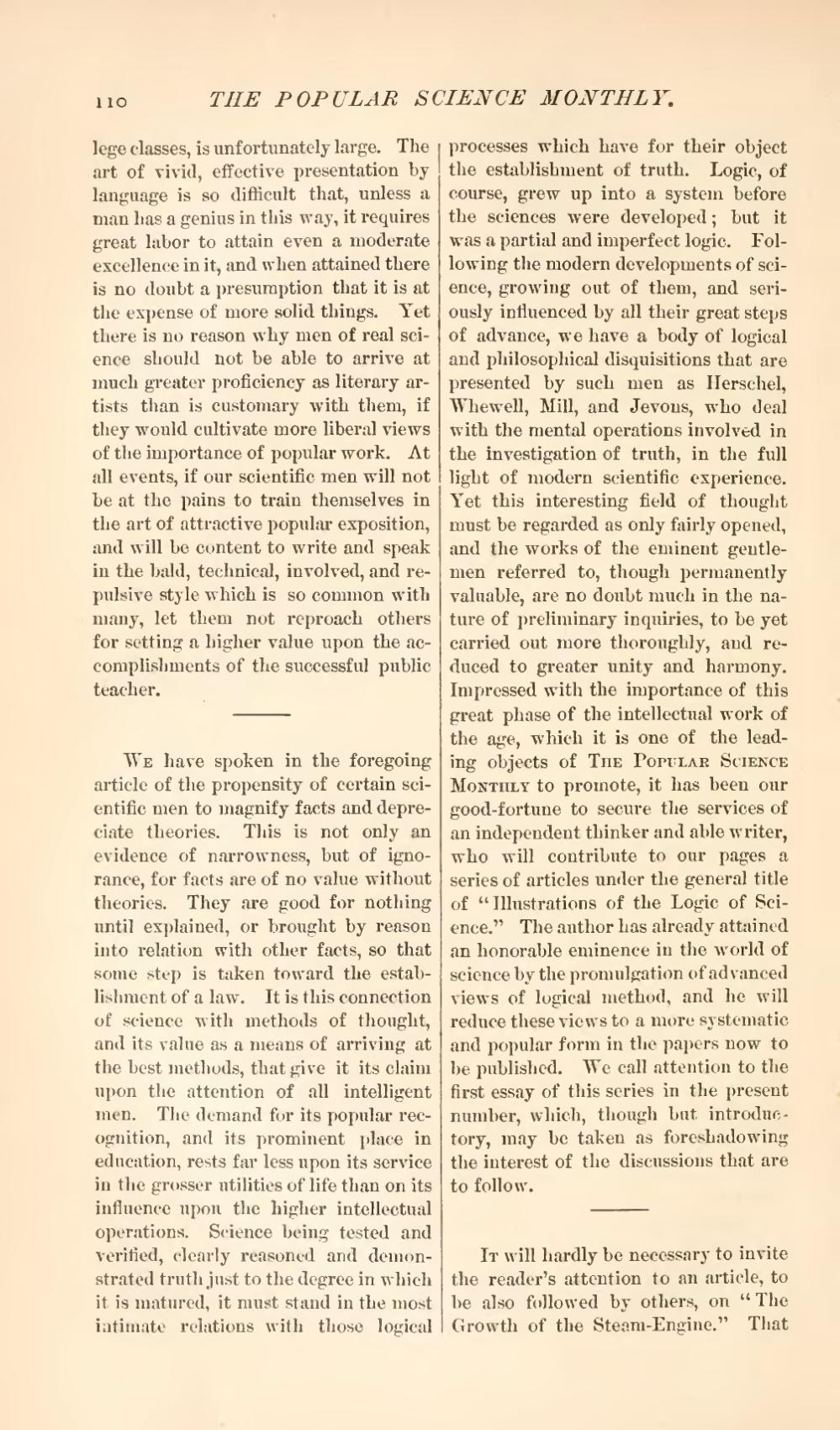lege classes, is unfortunately large. The art of vivid, effective presentation by language is so difficult that, unless a man has a genius in this way, it requires great labor to attain even a moderate excellence in it, and when attained there is no doubt a presumption that it is at the expense of more solid things. Yet there is no reason why men of real science should not be able to arrive at much greater proficiency as literary artists than is customary with them, if they would cultivate more liberal views of the importance of popular work. At all events, if our scientific men will not be at the pains to train themselves in the art of attractive popular exposition, and will be content to write and speak in the bald, technical, involved, and repulsive style which is so common with many, let them not reproach others for setting a higher value upon the accomplishments of the successful public teacher.
We have spoken in the foregoing article of the propensity of certain scientific men to magnify facts and depreciate theories. This is not only an evidence of narrowness, but of ignorance, for facts are of no value without theories. They are good for nothing until explained, or brought by reason into relation with other facts, so that some step is taken toward the establishment of a law. It is this connection of science with methods of thought, and its value as a means of arriving at the best methods, that give it its claim upon the attention of all intelligent men. The demand for its popular recognition, and its prominent place in education, rests far less upon its service in the grosser utilities of life than on its influence upon the higher intellectual operations. Science being tested and verified, clearly reasoned and demonstrated truth just to the degree in which it is matured, it must stand in the most intimate relations with those logical processes which have for their object the establishment of truth. Logic, of course, grew up into a system before the sciences were developed; but it was a partial and imperfect logic. Following the modern developments of science, growing out of them, and seriously influenced by all their great steps of advance, we have a body of logical and philosophical disquisitions that are presented by such men as Herschel, Whewell, Mill, and Jevons, who deal with the mental operations involved in the investigation of truth, in the full light of modern scientific experience. Yet this interesting field of thought must be regarded as only fairly opened, and the works of the eminent gentlemen referred to, though permanently valuable, are no doubt much in the nature of preliminary inquiries, to be yet carried out more thoroughly, and reduced to greater unity and harmony. Impressed with the importance of this great phase of the intellectual work of the age, which it is one of the leading objects of The Popular Science Monthly to promote, it has been our good-fortune to secure the services of an independent thinker and able writer, who will contribute to our pages a series of articles under the general title of "Illustrations of the Logic of Science." The author has already attained an honorable eminence in the world of science by the promulgation of advanced views of logical method, and he will reduce these views to a more systematic and popular form in the papers now to be published. e call attention to the first essay of this series in the present number, which, though but introductory, may be taken as foreshadowing the interest of the discussions that are to follow.
It will hardly be necessary to invite the reader's attention to an article, to be also followed by others, on "The Growth of the Steam-Engine." That
